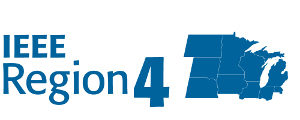[] Welcome to the fifth year of this IEEE Electronics Packaging Society Symposium. This symposium will focus on quantified reliability, accelerated testing and probabilistic assessments of the useful lifetime of electronic, photonic, MEMS and MOEMS materials, assemblies, packages and systems in electronics and photonics packaging in the context of heterogeneous integration. Get ready to dive deep into topics such as failure modes, mechanisms, testing methodologies, accelerated testing, stress levels, and environmental stresses. We're thrilled to bring together a dynamic community of electrical, reliability, materials, mechanical, and computer engineers, alongside applied scientists, to share and discuss the latest breakthroughs in electronic and photonic packaging. This symposium is your chance to explore the state-of-the-art in design-for-reliability, manufacturing, reliability modeling, and accelerated testing. Join us for a memorable journey into the forefront of technology and innovation. Purdue University, West Lafayette, Indiana, United States, 47906, Virtual: https://events.vtools.ieee.org/m/431114

